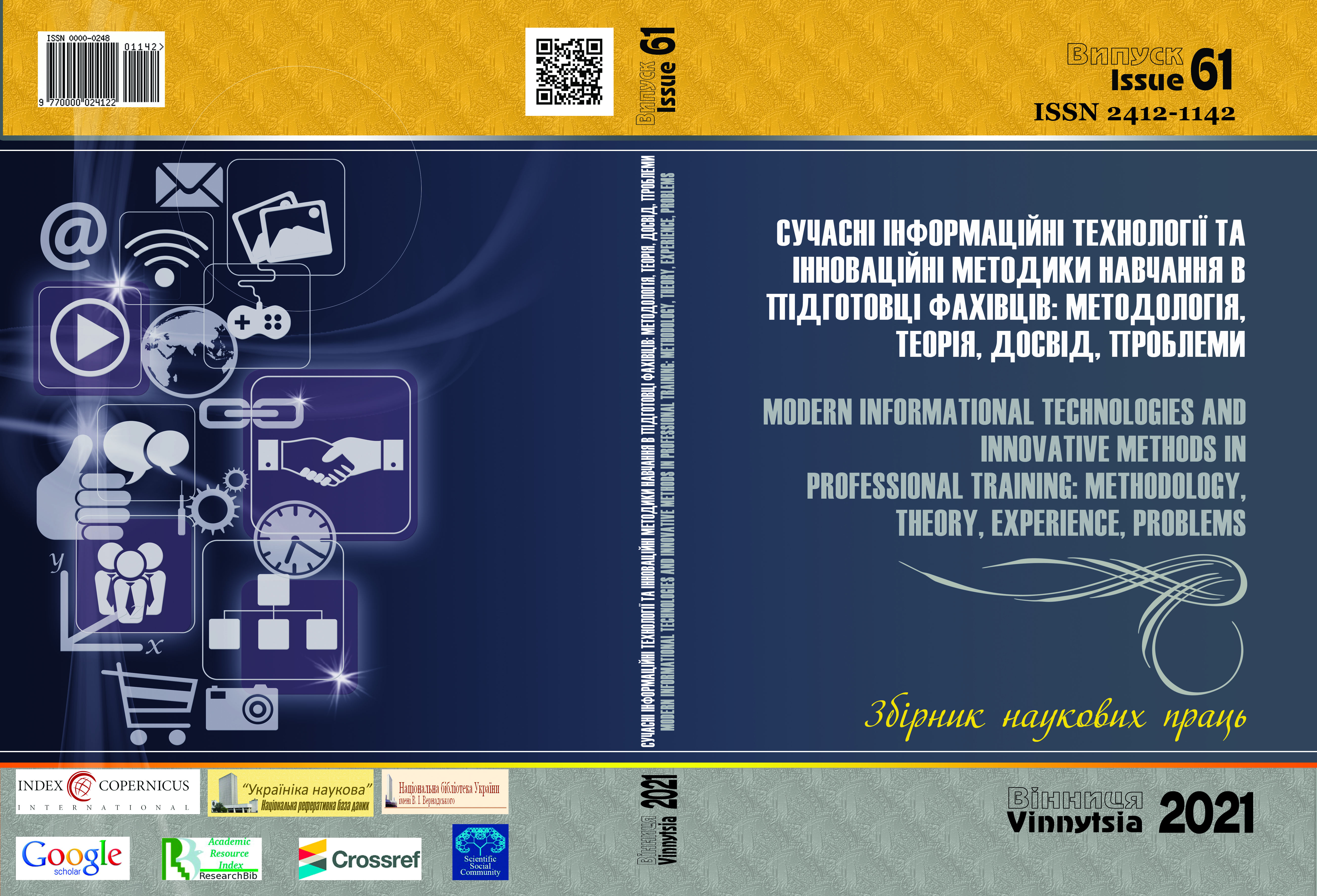THEORETICAL AND METHODOLOGICAL FUNDAMENTALS OF FOREIGHN LANGUAGE PROFESSIONAL AND COMMUNICATIVE INTERACTION IN PROFESSIONAL ACTIVITY OF FUTURE SPECIALISTS WITH HIGHER EDUCATION
DOI:
https://doi.org/10.31652/2412-1142-2021-61-38-45Słowa kluczowe:
foreign language communicative training, future specialists, higher education, professional activityAbstrakt
Today there is an interdependence in society between the quality of future specialist with higher education professional level → the quality of a specialist training – a higher education graduate. The article considers future specialists with higher education foreign language training in the professional activity as a process of personal development in the context of "polylogue of cultures". Defining new goals, teaching content and methods, the research topic contributes to the foreign languages education reform, taking into account Common European Framework of Reference for Languages, providing flexibility in selection and distribution of educational material, without limiting the independence and creativity of professional activity of future specialists with higher education. Emphasis has been placed on the fact that during the century of information society, with the expansion of migration processes around the world, the individual with his vital needs to optimize international relations should remain the most important asset and value. It has been found that future specialists with higher education are not aware of professional foreign language terminology and research methods, do not know how to express their opinions properly, substantiate their claims, motivate them, analyze, synthesize, compare, classify, and highlight the main information. It was concluded that the basic factor in this interaction is the future specialist with higher education professionalism, which is determined by a number of modern time’s professional requirements to the specialist personality, as well as the expansion of intercultural contacts in personal and professional spheres. In particular, the problem of the future specialist personality competences formation is reflected in pedagogical literature mainly in the researches of personality’s professional formation, development and self-improvement as the subject of professional activity by K. Abulkhanova-Slavska, O. Bodalov, I. Zimnyaya, N. Kuzmina, A. Markov, V. Semichenko, V. Slastyonin, Y. Fokin, V. Shadrykov and others. The recent research and publications analysis has made it possible to prove that control over the process and results of learning foreign languages is revealed through the criteria for assessing the coherence of oral monologue speech (I. Andreasyan); teacher’s controlling function of the learning oral language process (L. Shaverneva); control of spoken monologue and dialogic speech (I. Antonov); determining the proficiency level in foreign productive language (M. Astvatsatryan, O. Bashmakova); the basic level of success control (L. Denisova, N. Dogonadze, N. Efremova, E. Zhukova, N. Yelukhina, O. Polyakov, E. Ten, etc.); formation level control of the students' communication skills (V. Natalin, S. Natalina, B. Parashchuk). The concept of “competence” from an educational point of view has been also defined. It is concluded that the important condition for future professionals with higher education training is to build the learning process on the basis of a competency approach, the essence of which we understand as the learning process focusing on the key and subject competences development of future professionals. The basic principles of foreign language professional-communicative interaction have been defined as the fundamentalization of general professional training as a process of multivariate (nonlinear) interaction of educational space subjects, the result of which is the key general and professional competences formation, generalized ways of thinking, readiness for future professional development, and lifelong learning.





